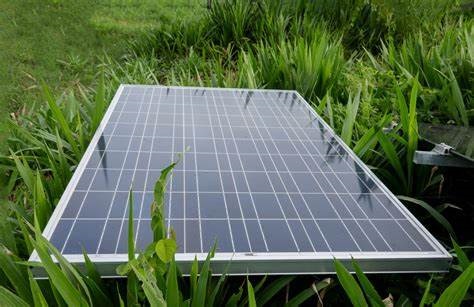Solar cells and batteries serve distinct purposes in the realm of energy storage and utilization.
- Function:
- Solar Cells: Convert sunlight into electricity through the photovoltaic effect. When exposed to sunlight, solar cells generate direct current (DC) electrical power.
- Batteries: Store and release electrical energy. Batteries store electricity in chemical form during charging and release it when needed.
- Energy Source:
- Solar Cells: Harness energy from sunlight. They are primarily used to generate electricity from solar radiation.
- Batteries: Store energy from various sources, including electricity generated by solar cells, power grids, or other sources.
- Energy Conversion:
- Solar Cells: Convert light energy (photons) into electrical energy (electrons) through the photoelectric effect.
- Batteries: Convert electrical energy into chemical energy during charging and convert it back to electrical energy during discharging.
- Usage:
- Solar Cells: Used in photovoltaic systems to generate electricity for various applications, such as powering homes, electronic devices, and providing energy for remote areas.
- Batteries: Utilized for storing energy and providing a portable and independent power source for devices, vehicles, and backup power systems.
- Output:
- Solar Cells: Generate electrical output when exposed to sunlight, producing a continuous flow of electricity as long as there is sunlight.
- Batteries: Provide a stored electrical output that can be used when needed. The discharge of a battery is typically controlled and can be used even when there is no external power source.
- Storage Capacity:
- Solar Cells: Do not store energy themselves; their output is instantaneous and depends on sunlight availability.
- Batteries: Store electrical energy for later use, allowing for a continuous power supply even when the primary power source (e.g., solar cells) is not available.
- Technology:
- Solar Cells: Often made from semiconductor materials (such as silicon) and rely on the photovoltaic effect.
- Batteries: Use various electrochemical technologies, including lithium-ion, lead-acid, nickel-cadmium, etc., depending on the type of battery.
In summary, solar cells are devices that convert sunlight into electricity, while batteries store and release electrical energy. While solar cells generate electricity directly from sunlight, batteries store energy for later use and can be charged from various sources, including solar cells. Both play crucial roles in sustainable energy systems and portable power applications.


